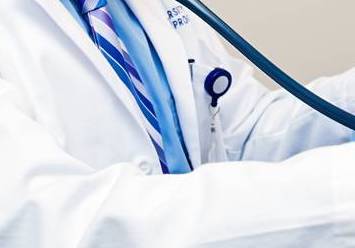For more information
Course logistics or general information, contact: Diane Slaughter at (414) 288-3097 or diane.slaughter@marquette.edu
Course content, contact Brenda Neumann at brenda.neumann@marquette.edu
COURSE TESTIMONIALS
This course was a standout for many reasons. The anatomy lab was wonderful and was a great supplement to the lecture. The biofeedback lab with a lab assistant for each group was invaluable! This course has really expanded my knowledge and comfort level in terms of understanding treatment options and use of biofeedback. Jaimie Patillo, MS, OTR/L Bluffton, S.C.
I really appreciated the integration of relaxation techniques and meditation with the biofeedback material being presented in this very informative course. Ginny Jurken PT; C-IAYT
Wonderful and very informative class. Dr. Tries is an excellent instructor. She can explain difficult concepts very well and makes it easy to understand. Highly recommended! I have attended several pelvic classes. This is exceptional! - Glenda B., PT, MHS, CLT, ACSM EP-C, CCET Gurnee, Ill.
Very friendly staff hope to come back for more learning experiences. - Miriam Saldon, PT, Port Orange, Fl.
Dr. Tries is a true gift to the field. I feel honored to be able to study underneath her by taking this course. Her knowledge and passion for the field is inspiring. I have obtained knowledge and skill that I can apply to my practice immediately. - Nina Olson, DPT, CMPTP, Fox Point, Wis.
This course has provided me with the theory and skills necessary to treat patients with pelvic floor disorders using biofeedback and behavioral treatment. It was well organized. -Nicole Quarne, PT, Loyola, Wis.
There is no other course in the country like yours! It encompasses using biofeedback with multiple strategies and the physiological understanding of how to treat pelvic floor disorders. It is so well organized and fun. Thanks you! It reflects the impressive PT program Marquette offers! - Ellen Fineman, PT, Tualatin, Ore.
If you plan to use biofeedback for testing or neuromuscular re-education, this course has given me the skills to understand and manipulate a biofeedback device in a confident and meaningful way that no other pelvic muscle dysfunction course has provided -Carol Gardner, PT, Red Win, Minn.
This was the most comprehensive and engaging women’s health course I have ever taken. The instructors really take their time and prove a personal touch that really makes the material and skills immediately applicable in your practice setting. -Emily Craigen, PT, OPT, Crystal Lake, Ill.
The small lab group allows for questions to be answered in detail and the TA’s can take the time to explain what you are seeing in the EMG readings and how to apply it to your patients. -Christine Sachs, PT, Farmington, Minn.
This is the most comprehensive pelvic floor course I have attended. Jeannette’s close attention to detail in instructing anatomy, physiology and neurology of pelvic floor is invaluable to new and experiences pelvic floor practitioners. -Jennifer Schaub, PT, Muskegon, Mich.
This course provides such thorough and integral information relevant to almost any therapy practice. From the expertise from Dr. Tries and guest lecturers, to the hands-on lab experience. This course has invigorated and inspired my future practice like no other continuing education opportunity has offered in this area of practice. -Molly Mahler, OT, Milwaukee, Wis.
This course was an excellent way for me to expand foundational knowledge of treating, and improving outcomes, for patients with bowel and bladder disorders. I am leaving the course with many resources, and knowledge, to immediately integrate into my OT practice. Acquiring these skills will be life-changing for multiple populations and treating across the life-span. -Erica Stevens, MOTR, Harlan, Iowa

